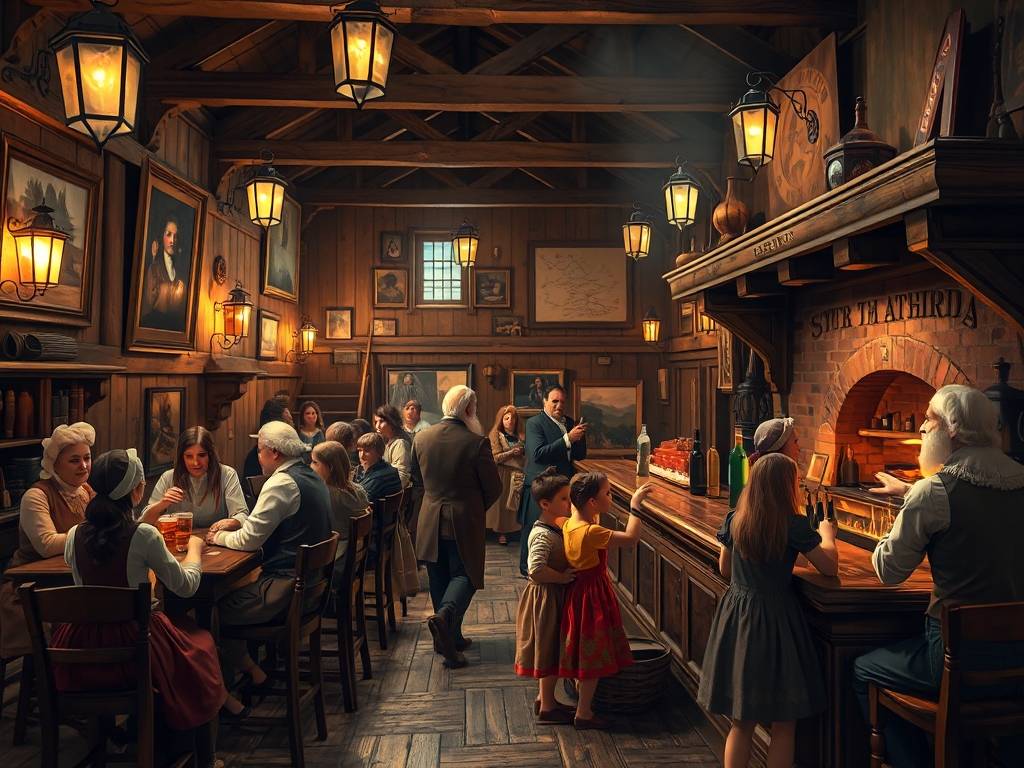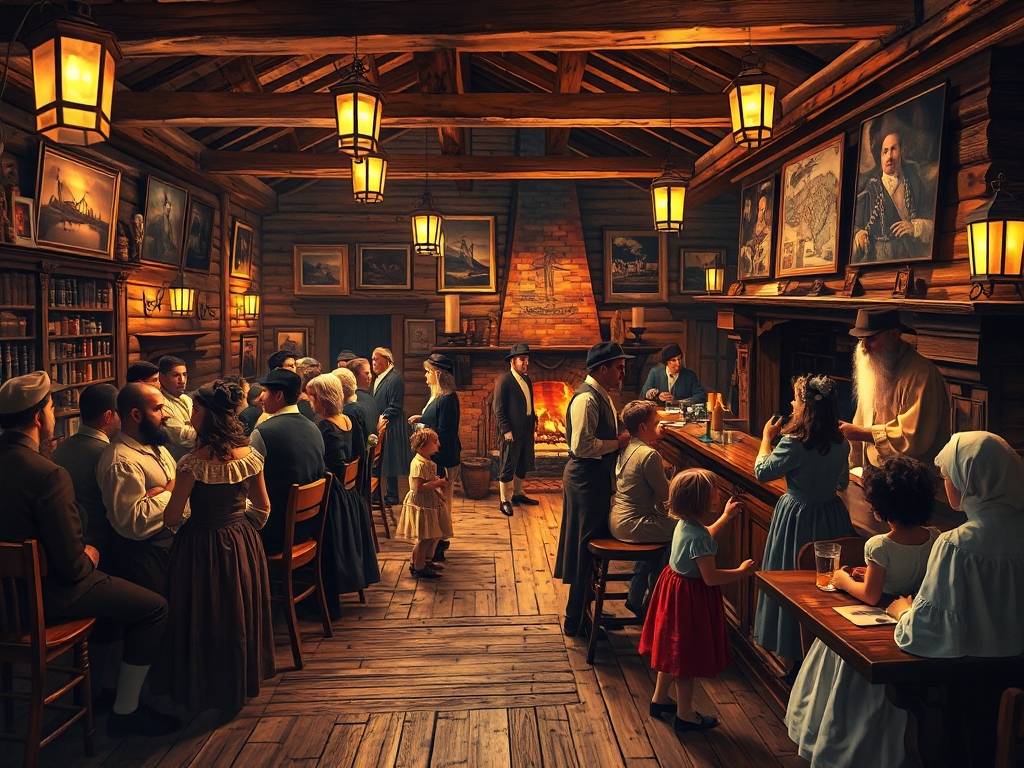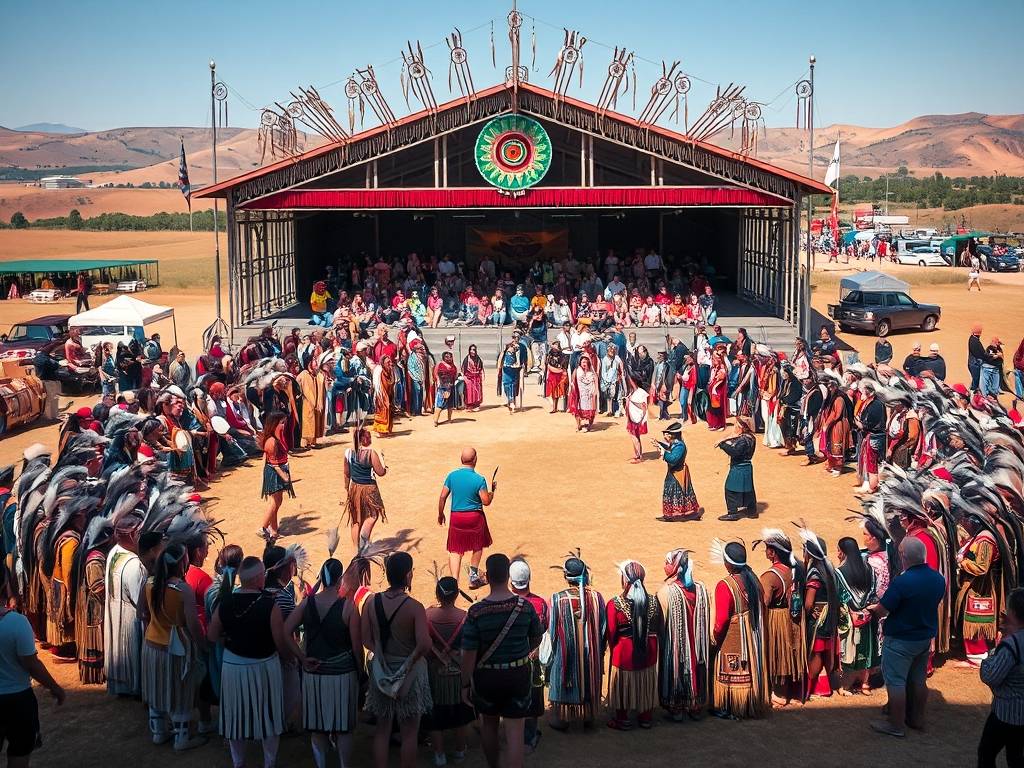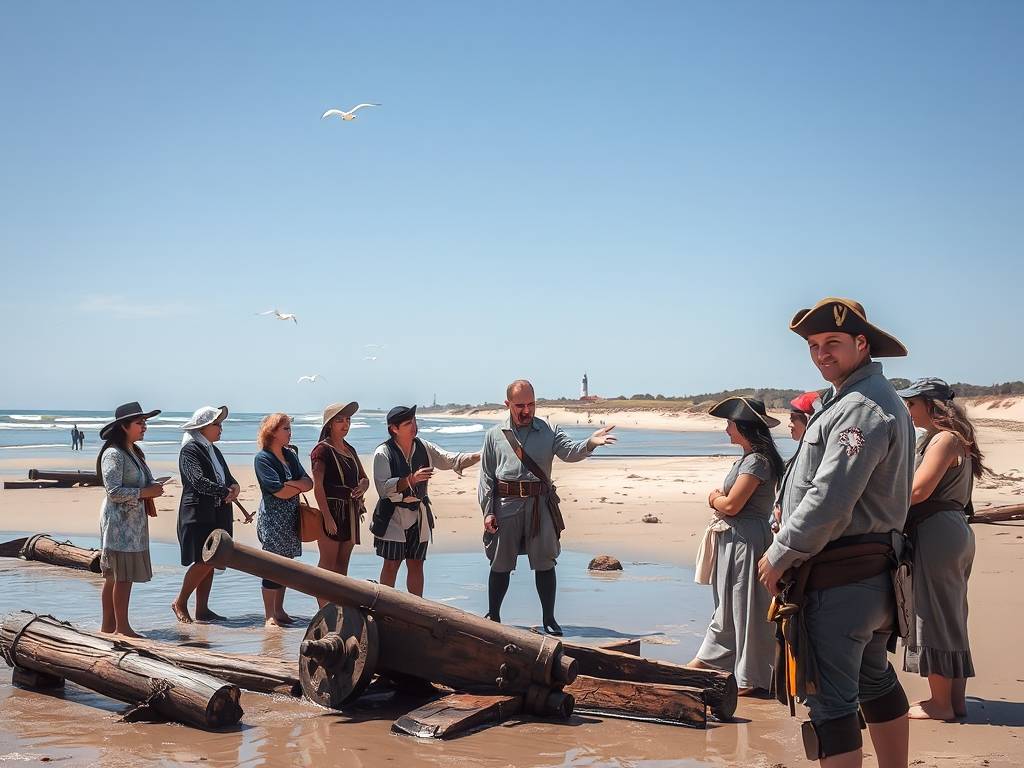USA Travel
US Travel: Colonial Era Tavern Visits in Pennsylvania’s Philadelphia
A Time-Traveler's Pint: Uncovering Philadelphia's Revolutionary Taverns

Close your eyes for a moment and listen. Beneath the modern hum of Philadelphia, if you strain your ears, you might just hear it—the faint clatter of pewter tankards, the boisterous debates of men in waistcoats, and the crackling of a great hearth fire. This is the enduring echo of the colonial era tavern, the true social and political heart of 18th-century America. For any traveler seeking more than just a cursory glance at Liberty Bell, a journey into Philadelphia's historic taverns offers a tangible, immersive, and utterly captivating experience. It’s a chance to walk in the footsteps of Founding Fathers, to understand the birth of a nation not from a textbook, but from the very rooms where revolution was brewed, one pint at a time.
In colonial times, a tavern was far more than a place to drink. It was the nexus of community life—a news hub, a courthouse, a business venue, a post office, and a lodging house all rolled into one. In a city like Philadelphia, which was the bustling, sophisticated capital of the American colonies, these establishments were the engines of public opinion. Before mass media, the most reliable way to hear the latest gossip from London, learn about new taxes, or debate the philosophical ideas of Enlightenment thinkers was to gather at the local public house. For the modern visitor, stepping into one of these preserved taverns is like stepping into a living classroom.

No exploration of colonial era tavern visits in Pennsylvania’s Philadelphia is complete without starting at the City Tavern. Often called the "Most genteel" tavern in America, it was, in its day, a symbol of the city's wealth and refinement. Rebuilt in 1975 to its original 18th-century specifications, it’s not merely a museum; it’s a fully functioning restaurant where you can literally dine on history. Imagine sitting in a replica of a Chippendale chair, in a room lit by candlelight, savoring a dish like West Indies pepperpot soup or turkey pot pie, recipes painstakingly recreated from historical records. This is where John Adams, upon his first arrival in Philadelphia for the First Continental Congress, declared it was "the most genteel tavern in America."
It was at establishments like the City Tavern that the history of American democracy in Philadelphia taverns truly comes alive. The private dining rooms upstairs were not just for lavish feasts; they were the secret meeting chambers where men like George Washington, Thomas Jefferson, and Benjamin Franklin debated the future of the colonies away from prying eyes. Here, over Madeira wine and hearty meals, the groundwork for the Declaration of Independence and the Constitution was laid. When you visit, you aren't just learning about history; you are standing in the very spaces where it was argued, shaped, and decided. This makes for an immersive historical travel experience in Philadelphia that is both profound and personal.
But Philadelphia’s tavern story isn't all about polished silver and political elites. For a more rustic, earthier experience, a visit to the King George III Inn (now known as the "King George Inn" for obvious revolutionary reasons) is a must. Located a short drive from the city center, it claims to be one of the oldest continuously operating inns in the United States. Its low ceilings, wide-plank floors, and massive fireplaces offer a different, more rugged perspective on colonial life. This was the kind of place where weary travelers, local farmers, and tradesmen would mingle. Here, the conversations were just as passionate, but they were about the price of grain, the hardships of frontier life, and the very real, personal impacts of British policies.
This contrast is crucial. A comprehensive guide to historic taverns in Philadelphia for tourists must highlight this spectrum, from the genteel to the commonplace. It was in the aggregation of all these voices—from the philosophical elite at the City Tavern to the pragmatic common man at inns like the King George—that a unified revolutionary spirit coalesced. To truly understand the American Revolution, you must understand that it was not a movement dictated from on high, but one that was fermented in these public spaces, fueled by shared frustration and a collective dream of self-determination.
So, how does a modern traveler plan these colonial era tavern visits in Pennsylvania’s Philadelphia? The key is to engage all your senses.
Taste: Don't just look—eat and drink! Colonial fare was seasonal, hearty, and flavorful. Look for dishes featuring game, root vegetables, and seafood. And yes, you must try the drinks. Small beer (a low-alcohol beer safe for drinking all day), hard cider, and rum punches were the staples of the time. Tasting these authentic colonial food and drink experiences in Philadelphia taverns completes the time-travel illusion.
Listen: Many historic taverns host reenactors or knowledgeable staff who don't just recite facts but tell stories. Ask questions! What would the conversations have been like? How did news travel? What were the popular songs of the day? This interactive element turns a simple visit into a deep dive into 18th century social life in Philadelphia.
Touch: Run your hand along the smooth, worn wood of a bar top that has seen centuries of use. Feel the chill of a stone fireplace in winter. This physical connection to the past is a powerful part of the experience.
For families, this is one of the best family-friendly historical activities in Philadelphia. Children are often fascinated by the "strange" food, the lack of electricity, and the dramatic stories of spies and revolutionaries. It makes history exciting and accessible, far more than simply looking at a display case.
Ultimately, a tour of Philadelphia's colonial taverns is more than a checklist of old buildings. It is a pilgrimage to the incubators of American liberty. It’s an understanding that the grand ideals of freedom and representative government were not born in sterile halls, but in vibrant, noisy, and sometimes raucous public houses, over shared meals and raised glasses. As you finish your own meal at the City Tavern or raise a pint at a quieter inn, you become part of that long, unbroken chain of patrons. You are participating in a tradition that is as American as the liberty it helped to forge. So, on your next trip, skip the rushed tour and settle in. Order a pint, listen to the echoes, and let the spirit of 1776 wash over you. You'll leave with a much richer, more flavorful understanding of how this great nation began.
相关文章
- US Travel: Gold Rush Museums in California’s Sacramento
- US Travel: Civil Rights Movement Tours in Alabama’s Birmingham
- US Travel: Victorian Mansion Tours in Rhode Island’s Newport
- US Travel: Mission Tours in California’s San Juan Capistrano
- US Travel: Pirate History Tours in North Carolina’s Outer Banks
- US Travel: Native American Powwow Experiences in Oklahoma
- US Travel: Historic Lighthouse Tours in Maine’s Portland Head
- US Travel: WWII Museum Visits in Louisiana’s New Orleans
- US Travel: Pioneer History Sites in Nebraska’s Omaha
- US Travel: Art Deco Architecture Tours in Florida’s Miami Beach
发表评论
评论列表
- 这篇文章还没有收到评论,赶紧来抢沙发吧~


